The conflict in Gaza has ignited an unprecedented surge of student activism at universities and colleges across the United States, marking a scale unseen since the anti-racism protests that swept the country four years ago. From coast to coast, campuses have witnessed chaotic scenes. So far, over 2,400 arrests have been made, yet this has not deterred the pro-Palestinian demonstrators.
Their demand is simple: Academic institutions must sever ties with Israel and organisations supporting its nearly seven-month military offensive in Gaza, which has claimed the lives of over 34,600 people and pushed the enclave to the brink of starvation.
What began as the Gaza solidarity encampment at Columbia University, where students rallied for their institution to divest from corporations profiting from Israel’s war, has transcended into a nationwide movement, spanning from California in the west to Massachusetts in the east. For university administrations, the timing couldn’t be more precarious, as these protests coincide with preparations for end-of-year graduation ceremonies.
Even as most universities grapple with the challenges posed by the protests, Columbia University finds itself at the epicentre of this controversy. Minouche Shafik, the university’s president and the first woman to head the Ivy League institution since its 18th-century inception, faced intense scrutiny during a charged Congressional hearing. In the wake of similar hearings where other university presidents were chastised for their management of student protests surrounding the Gaza conflict, Shafik’s tenure became increasingly precarious.

The fallout from these hearings was swift. Harvard President Claudine Gay resigned following her congressional testimony, as did University of Pennsylvania President M. Elizabeth Magill. Shafik herself faced a barrage of criticism during her testimony, with lawmakers accusing her of inaction against what was described as a ‘hotbed of anti-Semitism and hatred’ on campus.
The congressional scrutiny precipitated a crackdown on students. A day after Shafik pledged to quell unauthorised protests and address instances of anti-Semitism, she summoned the New York Police Department to dismantle the student encampment on campus. The resulting police intervention in mid-April led to the temporary dismantling of the encampment and the arrest of over 100 protesters on trespassing charges. However, within the university’s faculty, this move was widely viewed as a ‘monumental failure’ by the administration, inviting further disruption rather than mitigating it. Journalism professor Zeynep Tufekci was among those who aired their discontent on social media platform X. “From the very beginning, calling in the police quickly has been an escalatory dynamic. It almost always is,” Tufekci said in her post.
After weeks of silence, Shafik, now facing mounting demands for a vote of no confidence and her resignation, finally spoke out. In a video message, she described the Israel-Palestine conflict as too complex for Columbia to resolve ‘single-handedly.’ However, her message, much like her actions, backfired, triggering backlash even on social media platforms like Twitter. Academics and students alike took to the platform, targeting Columbia University’s official account and demanding her resignation within minutes of the message’s posting.
Amidst these demonstrations, one constant has emerged: unwavering support for the students. At Columbia University and its affiliated Barnard College, nearly 170 faculty members have signed an open letter condemning the backlash against students. Elsewhere, as university administrations cautiously turned their attention towards graduation ceremonies, students continued to set up encampments, organise rallies, and, in some instances, intensify their protests by occupying university buildings, echoing the actions seen at Columbia.
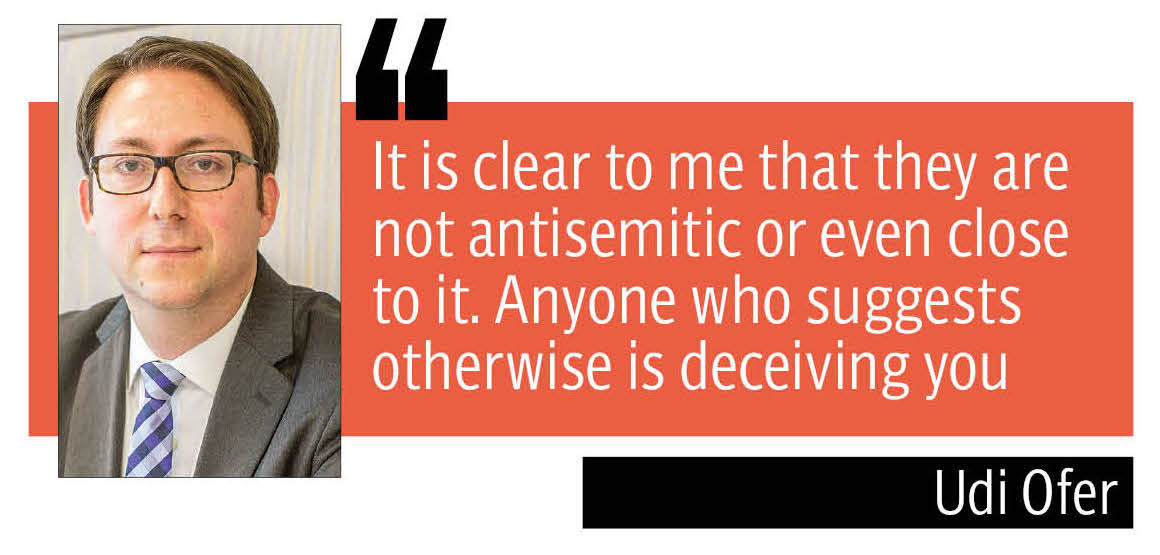
From Austin to Atlanta, university presidents have called upon campus police, city riot officers, and even state troopers to confront the civil disobedience of students who have established tent encampments on campus to protest the US-backed Israeli offensive in Gaza.
The conduct of law enforcement has, yet again, cast a harsh glare on police brutality and a lack of regard for the First Amendment rights safeguarding freedom of assembly, speech, and the press. As officers have aggressively confronted protesters and carried out questionable mass arrests, they have also subjected journalists and even university professors to physical force.
This stark contrast is particularly noteworthy, especially when juxtaposed with the restrained response witnessed during the January 6 attack by Trump supporters on the US Capitol. During that tumultuous event, lawmakers, including then Vice President Mike Pence, found themselves barricaded inside the Capitol as violent mobs breached its halls.
Across the country, academics have been hauled to the ground and detained and other demonstrators tasered. In a disturbing incident captured by CNN, Professor Caroline Fohlin of Emory University found herself in a violent altercation with law enforcement during a pro-Palestine protest on campus. The incident resulted in Fohlin facing charges for battery against a police officer. In the video footage, Fohlin was seen approaching a group of police officers as they wrestled with a protester, forcefully pushing their head into the concrete sidewalk. “Oh my God, what are you doing?” Fohlin could be heard asking, visibly shocked by the unfolding scene. Despite her appeals for the officers to disengage from the student, one officer aggressively seized her wrists and ordered her to the ground. Disregarding Fohlin’s protests, the officer then forcefully pushed her onto the pavement, causing her head to collide with the sidewalk. As Fohlin cried for help, another officer joined in to assist in restraining her, ultimately securing her hands with zip ties. Throughout the ordeal, Fohlin repeatedly identified herself as a professor of economics, yet her pleas were met with continued force from the officers.
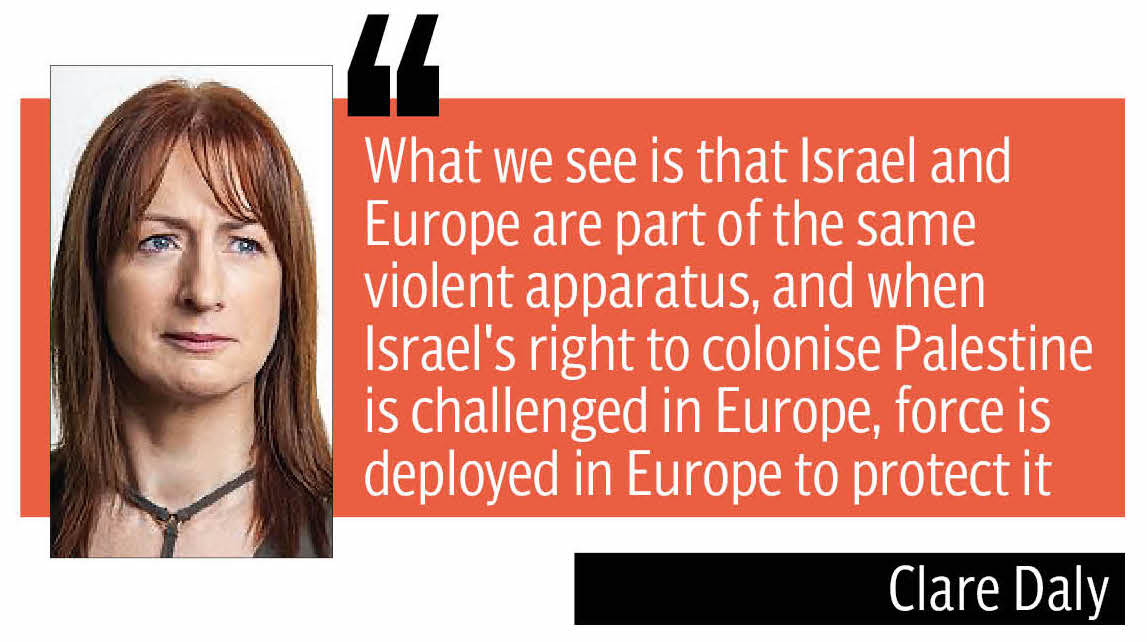
In response to inquiries, Fohlin maintained that she had not been actively participating in the protest on April 25, stating, “I emerged from my office, concerned solely about the treatment of students on the Quad.” Her lawyer, Gregory Clement, confirmed her intention to vigorously contest the charges in court.
Fohlin’s experience is not an isolated incident. Achinthya Sivalingam, an Indian-origin student, has also faced repercussions for her involvement in student-led pro-Palestine encampment protests at Princeton University. Sivalingam was arrested and subsequently banned from the university pending a disciplinary process. Similarly, Hassan Sayed, a fifth-year PhD candidate in economics, found himself barred from Princeton for his participation in the demonstrations. These incidents have exposed a broader trend of academic institutions responding to activism with punitive measures, sparking debates over freedom of expression and the right to protest on college campuses.
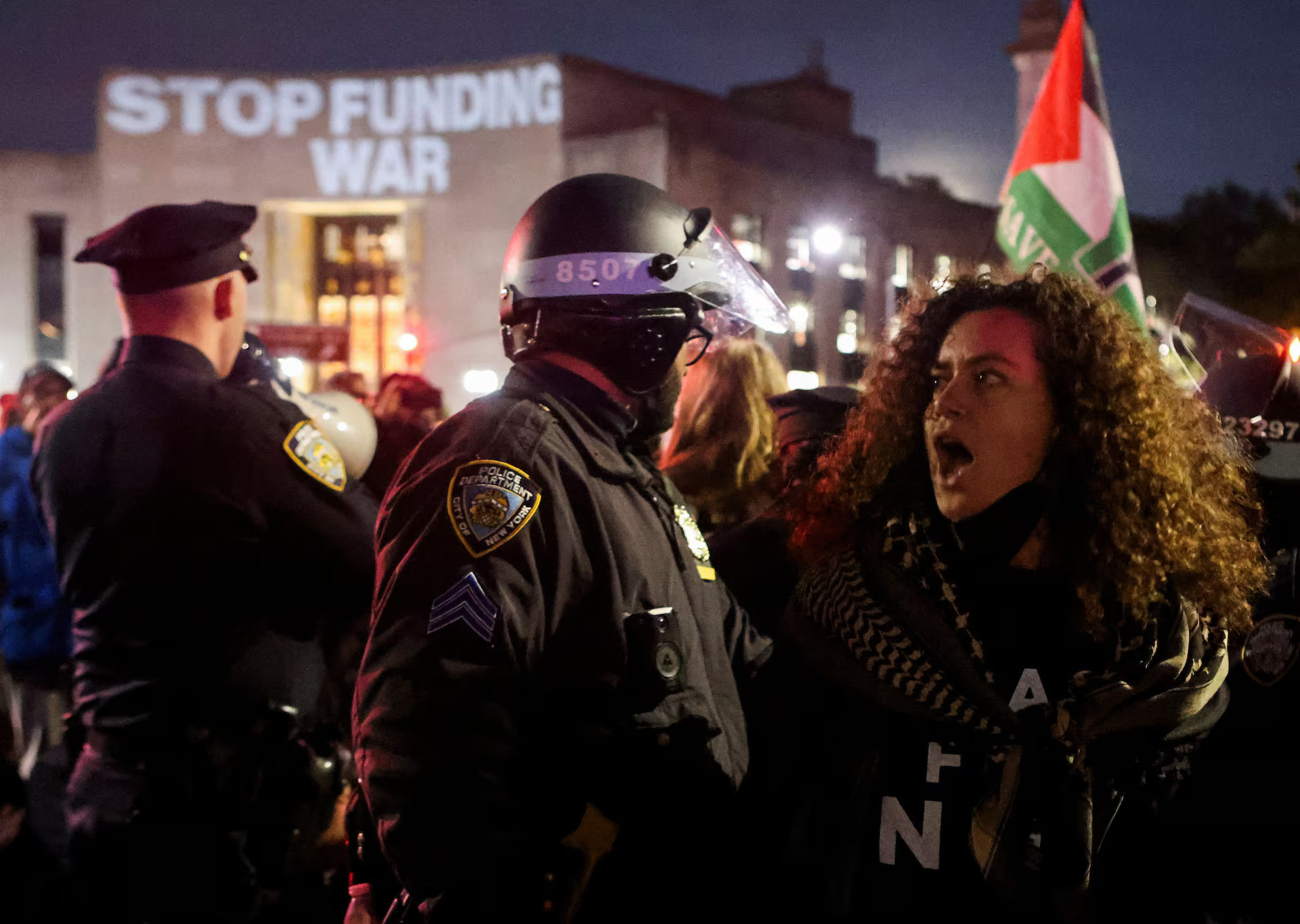
On the other hand, tensions have reached a boiling point on university campuses across the United States as student protests in solidarity with Palestinians continue to gain momentum. Earlier this week, at the University of California in Los Angeles (UCLA), a protest opposing Israel’s military offensive in Gaza descended into chaos. A vigilante pro-Israel group launched an assault on a solidarity encampment occupied by peaceful pro-Palestinian demonstrators, triggering a serious confrontation. Witnesses recounted that the Los Angeles Police Department (LAPD) intervened only after nearly four hours of the attack. Masked pro-Israel counter-demonstrators, estimated to number in the hundreds and arriving from off-campus locations, launched fireworks into the encampment, exacerbating the volatile situation. According to media reports, the assailants, carrying Israeli flags, subsequently attempted to dismantle the pro-Palestinian camp, attacking students with pepper spray, sticks, stones, and metal fencing. “Despite the escalating violence, law enforcement officers failed to provide adequate protection to the students, who resorted to utilising the metal fencing hurled at them as makeshift shields for self-defence,” said a UCLA student, speaking on the condition of anonymity.
Rights activists worldwide have condemned university administrators in the US, particularly Columbia and now UCLA. When asked to comment on the reaction by universities and the state of freedom, Kenneth Roth, former executive director of Human Rights Watch (HRW), stated, “The response to the protests does show a disturbing intolerance toward criticism of the Israeli government. That reflects in significant part pressure from donors who are willing to sacrifice academic freedom in the name of defending Israel from criticism.”
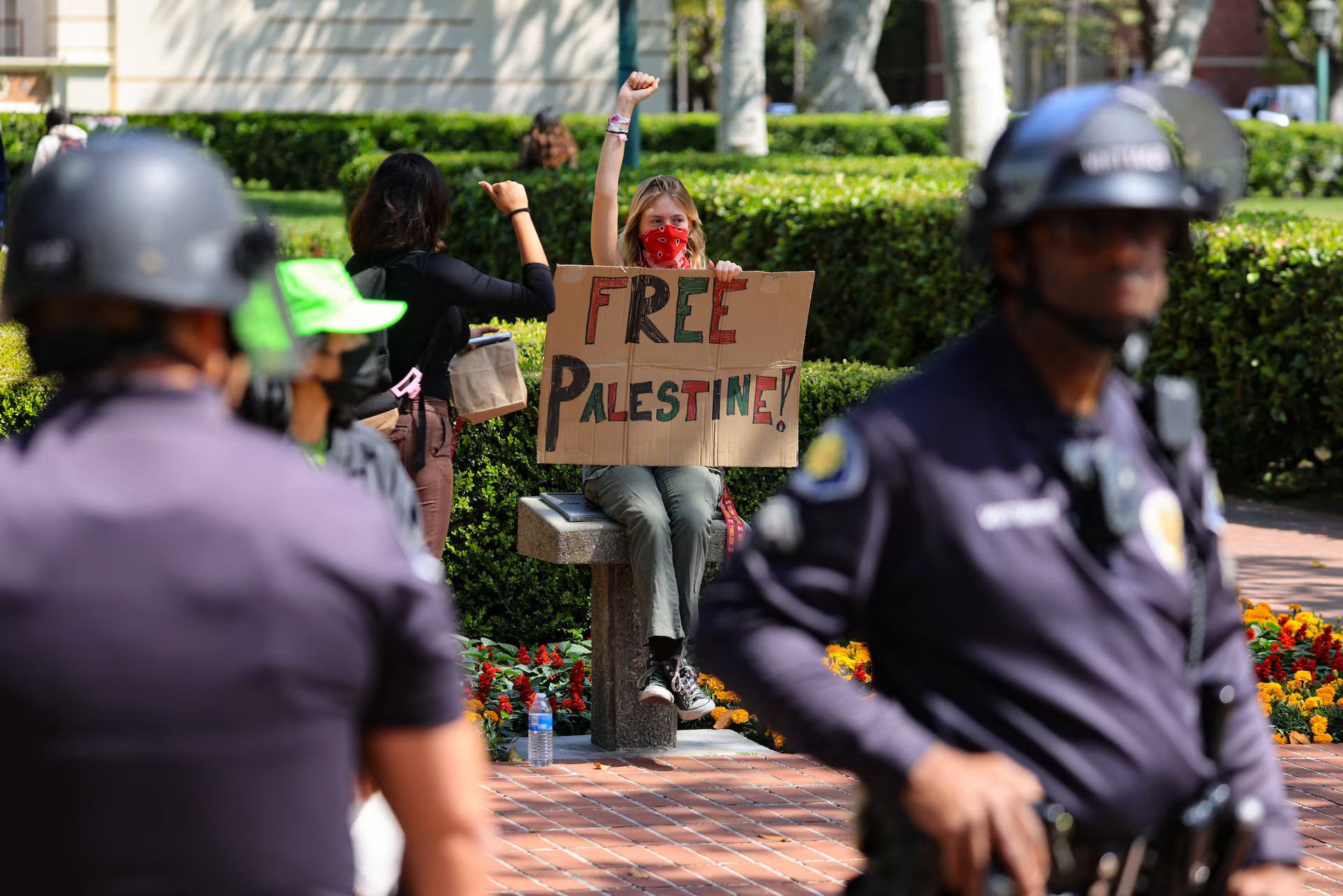
“It should be the responsibility of university leaders to reject such pressure and uphold academic freedom regardless of the subject. Short of violence, intimidation, or harassment toward other members of the university community, free speech should be prioritised even if some people are uncomfortable with the topic,” added Roth, who serves as a visiting professor at Princeton School of Public and International Affairs (SPIA).
Responding to a question about the state of democracy in the US, the long-time head of Human Rights Watch remarked, “We shouldn’t overstate the threat to US democracy. Yes, some university administrators have been too quick to shut down encampments established by students protesting US support for Israeli war crimes in Gaza, but those censorship efforts have backfired, sparking more protests.”
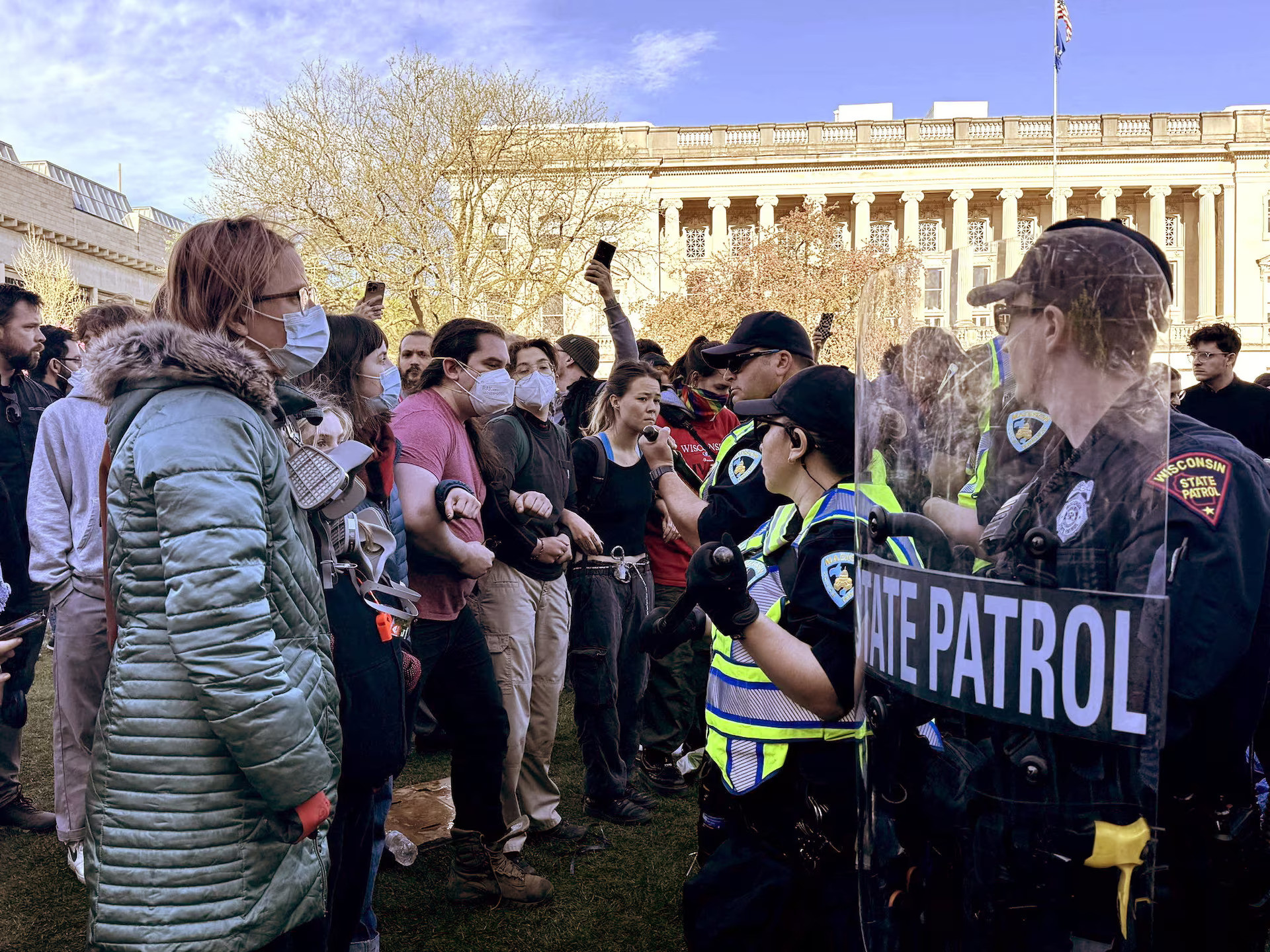
On comparison with protests that rocked the US universities during the Vietnam War, Roth said: “Fortunately, so far, there has been nothing approaching the use of lethal violence in the police response to the current round of campus protests. However, the lesson of the protests of the 1960s and 1970s against US involvement in the Vietnam War is that students can change a misguided US government policy. I hope the Biden administration similarly reconsiders its unconditional support for the Israeli government as it commits war crimes in Gaza.”
The protests, Roth said, show the importance of democracy as a tool to correct misguided governmental policy. “No government that purports to be a democracy should curtail protests even if – especially when – the government is the target of the protests,” he added.
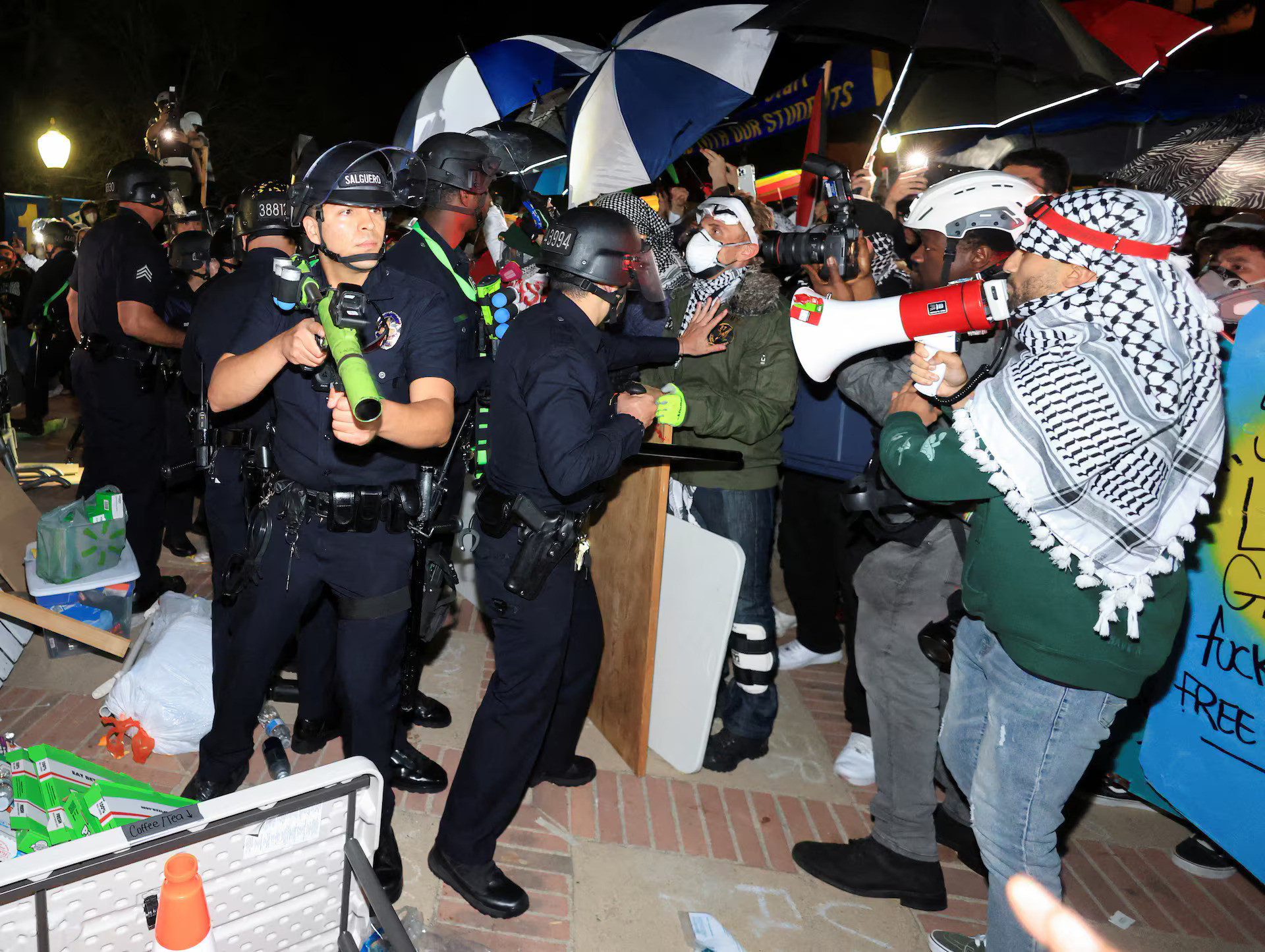
Anti-Semitism vs right to protest
Pro-Israel groups on campuses across the US claim that demonstrations in support of Palestine are veering toward anti-Semitism. Students advocating for Israel have also alleged feeling threatened by these protests and exposed to attacks from those affiliated with the encampments. Last month, Benjamin Netanyahu, Israel’s Prime Minister, echoed similar sentiments in a televised speech. While describing pro-Palestinian students as anti-Semitic, the Israeli leader urged the US government to stop the demonstrations. “What’s occurring on America’s college campuses is deeply concerning,” Netanyahu said, echoing sentiments primarily expressed by supporters of Israel regarding the safety of Israeli or Jewish students and faculty amidst escalating protests. “Anti-Semitic mobs have taken over leading universities. They call for the annihilation of Israel. They attack Jewish students. They attack Jewish faculty,” claimed Netanyahu. “It’s unconscionable. It has to be stopped.” The Israeli leader argued the “response of several university presidents was shameful” and said more needed to be done.
While the Biden Administration remained silent, US Senator Bernie Sanders delivered a scathing rebuttal. In a video posted on X, the progressive Jewish senator from Vermont – accused Netanyahu of “insulting the intelligence of the American people” by using anti-Semitism to divert attention from his government’s military offensive in Gaza.
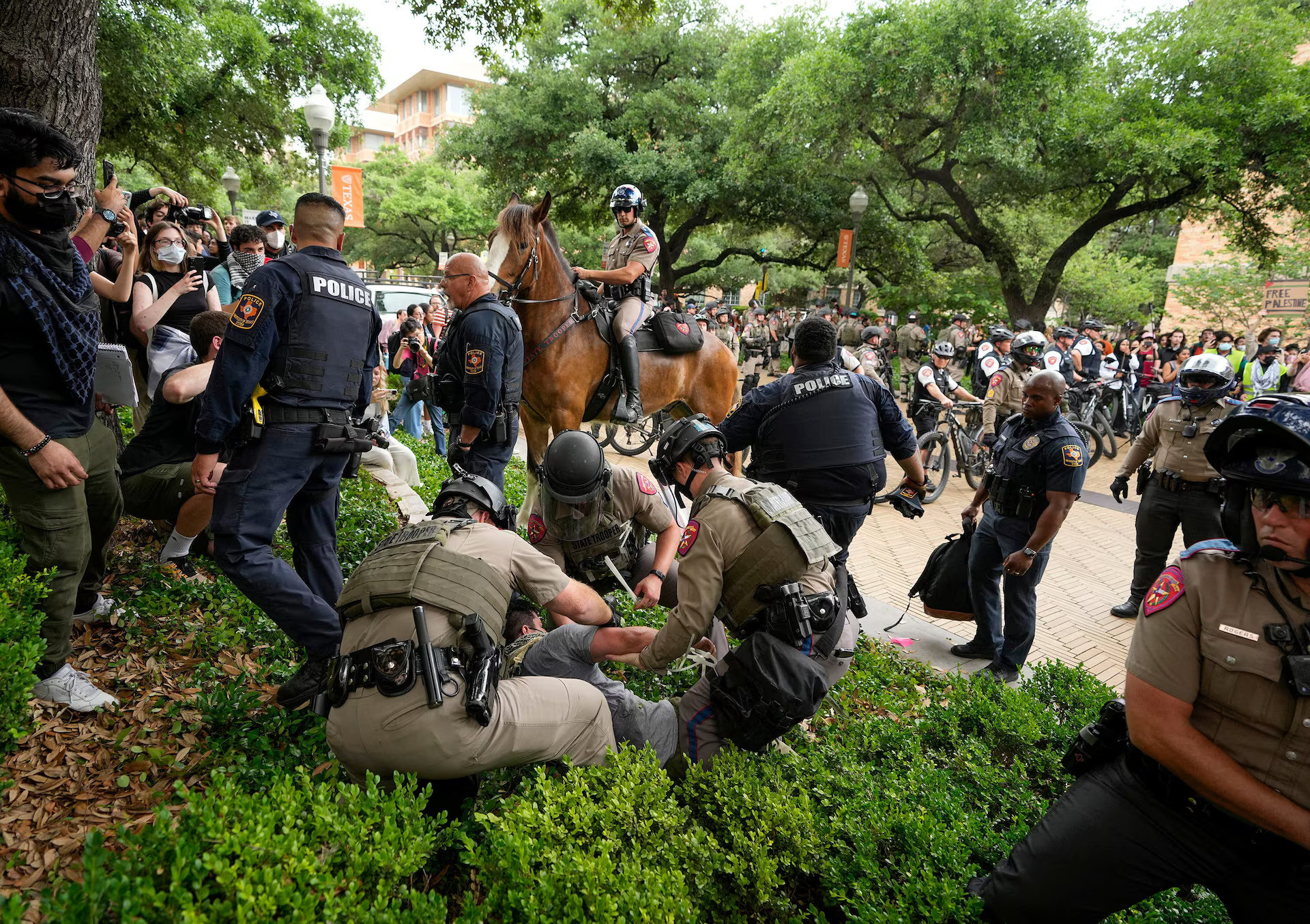
“No, Mr. Netanyahu, it is not anti-Semitic or pro-Hamas to point out that, in a little over six months, your extremist government has killed over 34,000 Palestinians and wounded more than 78,000, 70% of whom are women and children,” Sanders said in a clip posted on X.
In the midst of efforts to label the protests as anti-Semitic, an increasing number of academics have come forward to refute such claims. Udi Ofer, a visiting professor at Princeton SPIA, said: “I’ve visited the Gaza solidarity encampment at Princeton and have talked to plenty of people who visited the area at other campuses.” “It is 100% clear to me that they are not anti-Semitic or even close to it. Anyone who suggests otherwise is deceiving you,” he posted on X.
When asked about the discourse surrounding the Gaza conflict, Ken Roth said: “Some supporters of the Israeli government are using charges of anti-Semitism to try to stifle criticism of Israel. That cheapens and undermines the important fight against anti-Semitism. Of course, some critics of the Israeli government are anti-Semitic, but most people are critical of Israeli government conduct in Gaza because it is killing so many civilians and causing so much civilian suffering. That is not anti-Semitism.”
“It is wrong to weaponise charges of anti-Semitism to try to stop this legitimate and much-needed criticism,” Roth added.
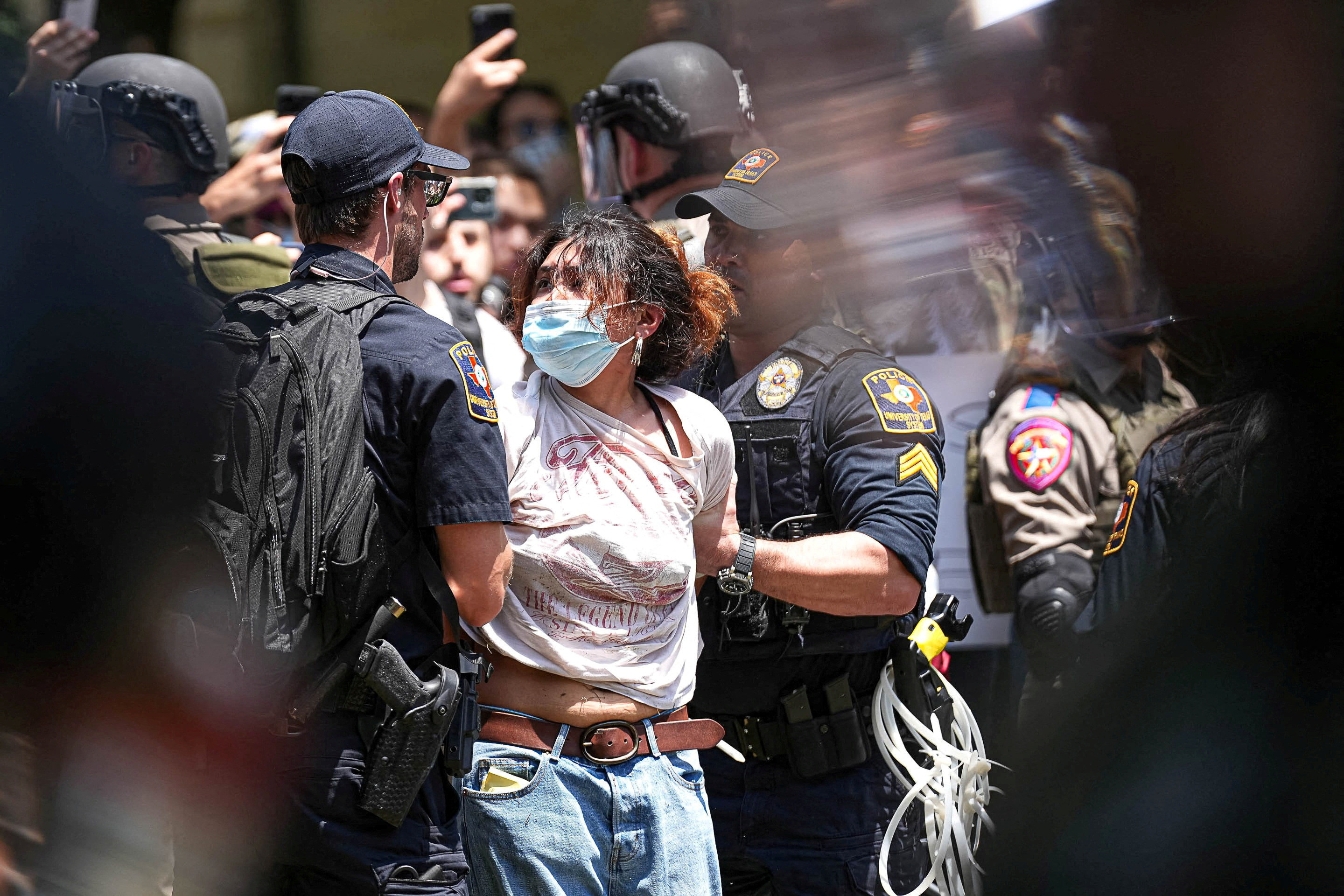
Biden’s silence
President Joe Biden, amid mounting pressure and criticism for his prolonged silence on the ongoing protests sweeping university campuses, finally addressed the issue this week. “In America, the right to protest is fundamental, but it does not justify violence,” said the president. Observers note that Biden may face intensified scrutiny come November, with a growing number of students either voting against him or abstaining altogether. “This could certainly impact President Biden’s prospects, especially considering his efforts to court young voters, particularly university students, through recent loan forgiveness measures,” commented one expert.
But it’s not just Biden’s silence that will haunt him in the upcoming presidential election; his administration’s support for Israel throughout the conflict is also under scrutiny. When asked about the impact of US support on its image as a champion of rights, Ken Roth said, “The US Congress just approved $26 billion in new military aid for Israel, on top of the $3.8 billion that it already sends Israel each year. Biden’s refusal to condition any of that aid on an end to Israeli war crimes in Gaza is seriously harming US credibility as it tries, for example, to curb Russian war crimes in Ukraine or China’s mass detention and persecution – crimes against humanity – targeting Uyghur Muslims in Xinjiang.”
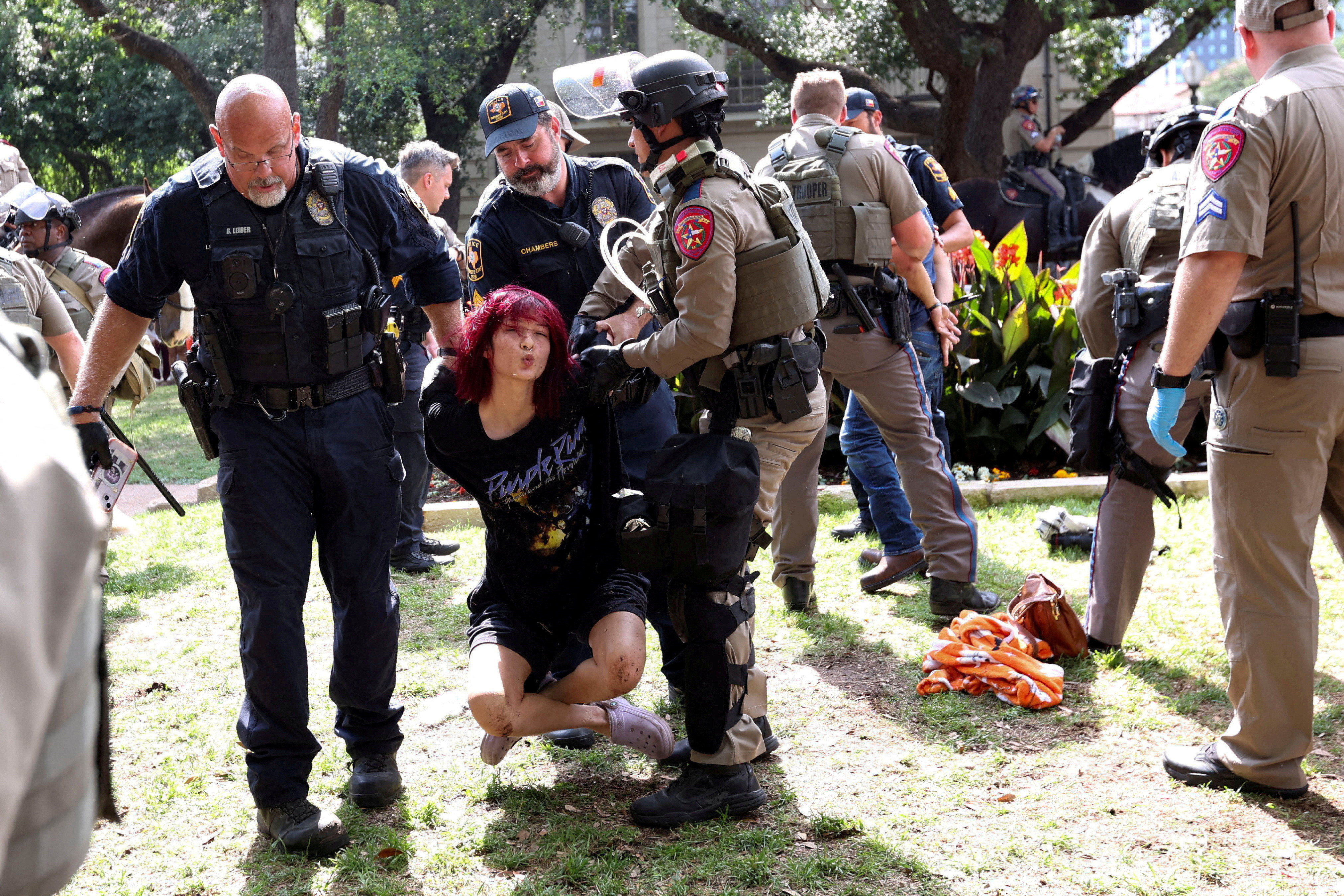
“The Israeli military is clearly committing regular war crimes in Gaza as it bombs and starves Palestinian civilians. President Biden has repeatedly pressed Israeli Prime Minister Netanyahu verbally for greater care for civilian life and an end to Israeli obstruction of humanitarian aid, but Biden has undercut his words by continuing to fund and arm Israel’s military campaign in Gaza,” the former executive director of HRW added.
Describing Biden’s actions as complicity in war crimes, Roth remarked, “That’s what former Liberian President Charles Taylor was convicted of and is now serving a 50-year prison term in a British prison because he armed an abusive rebel force in Sierra Leone.” “No one thinks that International Criminal Court chief prosecutor Karim Khan will charge Biden, but Biden is increasingly facing a political cost for his unwillingness to back his words with action toward Israeli war crimes in Gaza,” he added
“With the presidential election coming in November, Biden cannot afford to continue to ignore popular discontent with his soft-glove approach to Israel,” cautioned Roth.
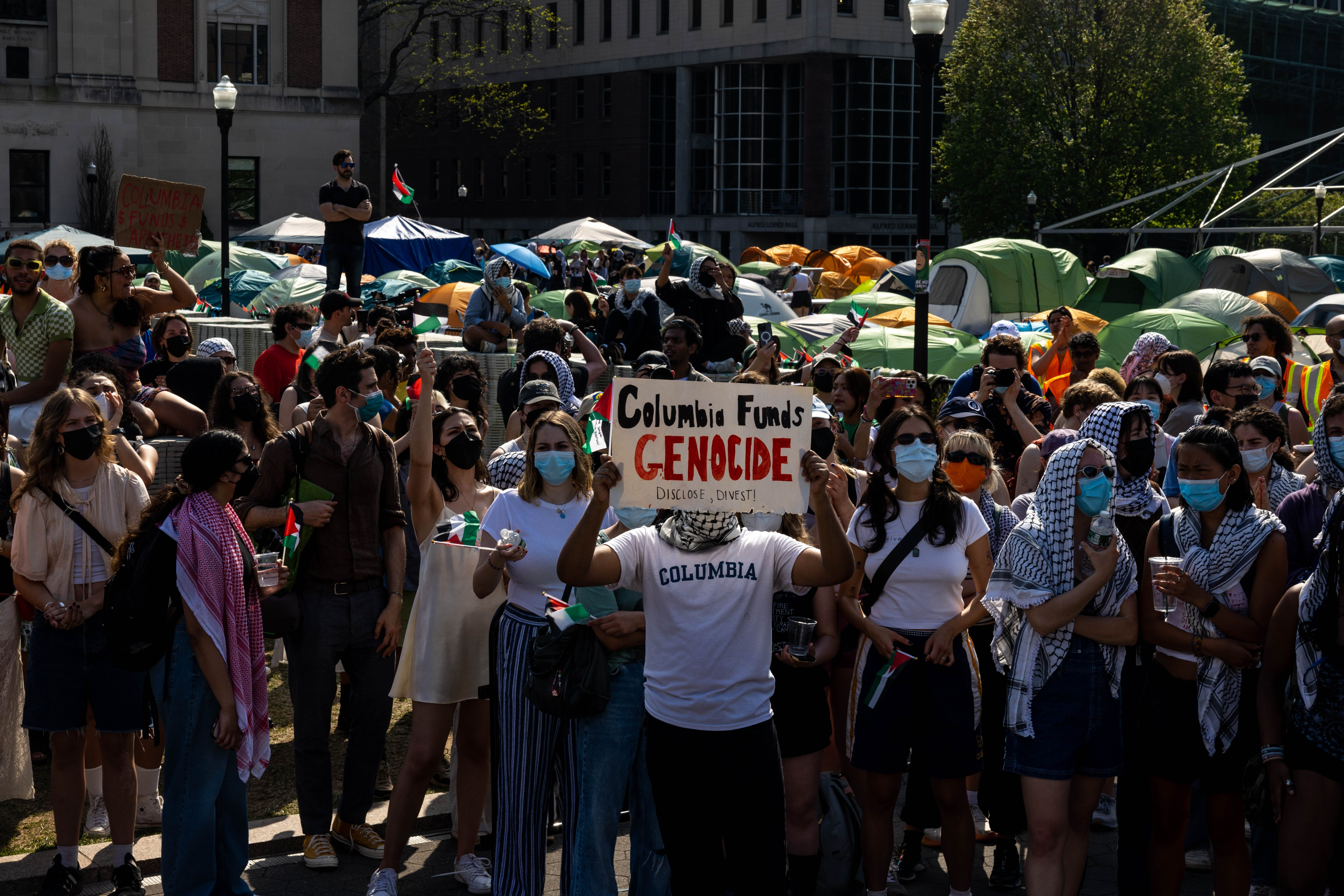
Global movement
Pro-Palestine demonstrations have now transcended national borders. In France, Sciences Po has emerged as the epicentre of student-led anti-war protests, primarily focused on the institution’s academic affiliations with Israel. Recent actions saw students obstructing access to the university premises. However, Jean Basseres, the director of Sciences Po, remained resolute in rejecting protester demands to reassess ties with Israeli universities, prompting the students to continue their sit-in. But on Friday, French police entered the university and evicted student activists who had occupied its buildings. Unlike on college campuses across the United States, the French protests remained peaceful, with no signs of violence as the students were removed from the premises. Crackdowns against pro-Palestinian protestors are becoming increasingly common in Europe. At Humboldt University’s main building in central Berlin, protesters wearing keffiyehs in solidarity with the Palestinians occupied the premises until Friday, when German police arrested several demonstrators and students. The group had been chanting slogans such as ‘Free Gaza’ and ‘Germany, stop supplying arms to Israel,’ while holding placards that read: ‘There is no academia without truth’ and ‘When injustice becomes law, resistance becomes duty.’ Apart from that, Europe has witnessed large-scale street protests amid arrests and clashes with police.
When questioned about Europe’s response to protests in favour of Palestine and its implications for the continent’s reputation as a bastion of freedom, Clare Daly, an Irish Member of the European Parliament, remarked, “It entirely undermines Europe’s claim to champion freedom of speech, the rule of law, and fundamental rights. It is no secret that Europe’s concern for human rights in its external relations is subject to a double standard: human rights for the victims of Europe’s adversaries, but they can be overlooked for the victims of Europe’s allies. It is also no secret that civil rights and fundamental freedoms have been under attack in Europe for some time.”
In response to a question regarding Germany’s unwavering support for Israel, despite the atrocities committed in Gaza, Daly, a vocal critic of Western policies toward Palestinians, stated, “In the last seven months, various European countries—Germany and France leading the way—have abandoned all pretence and curtailed fundamental rights to shield Israel from criticism while it engages in genocide.” The facade of European exceptionalism, she added, will never be put back together.
While much of the world criticises the US for its handling of pro-Palestinian protesters, Europe has not lagged far behind in its use of force to disperse or suppress demonstrations. When questioned about Europe’s response, Daly remarked, “What we’re witnessing is that Israel and Europe are part of the same system of violence, and when Europe’s complicity with Israel’s colonisation of Palestine is confronted, force is wielded to defend it.”
Expressing disdain, the EU lawmaker urged Europeans to stand up against the unjust actions. “These protests are essential because colonialism isn’t just happening ‘over there’—it’s right here at home, in Europe, and Europeans have a responsibility to challenge it.”
The ongoing protests and subsequent reactions are increasingly framed as a clash over free speech. Echoing Daly’s perspective, Ken Roth, former executive director of Human Rights Watch, emphasised, “There should be no Israel exception to free speech.” Roth criticised Germany in particular, stating that it is perhaps the most egregious offender in this regard. He argued that Germany is drawing the wrong lesson from the Nazis' responsibility for the Holocaust. “The lesson from the Holocaust should not be to support the Israeli government regardless of its actions, but to uphold international human rights standards even when the Israeli government is violating them,” he added.
